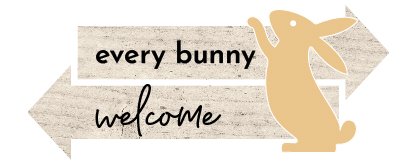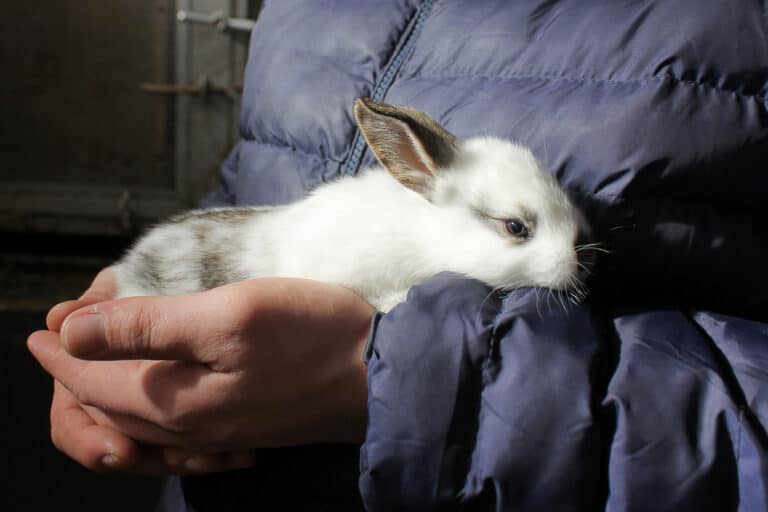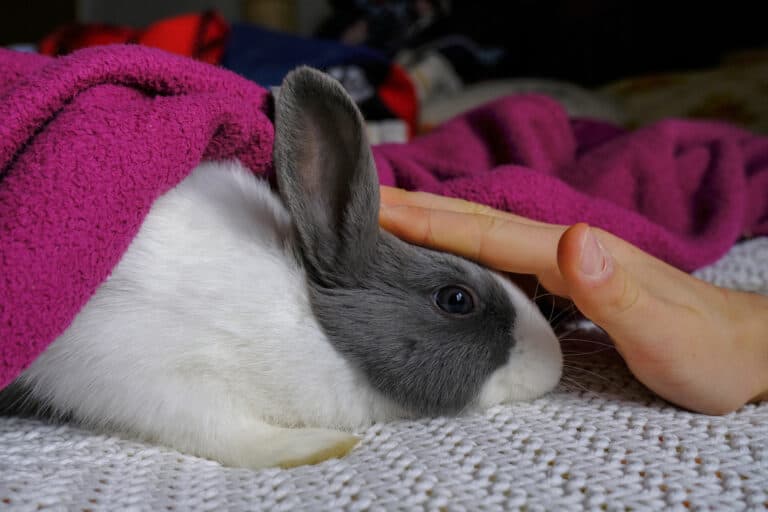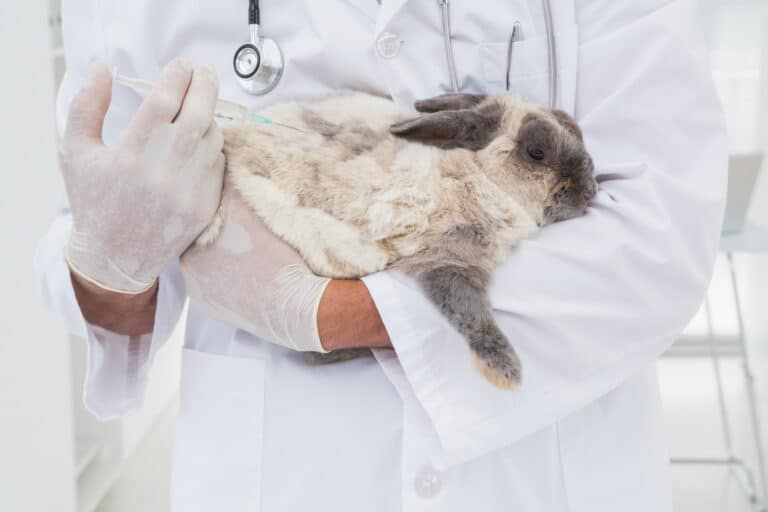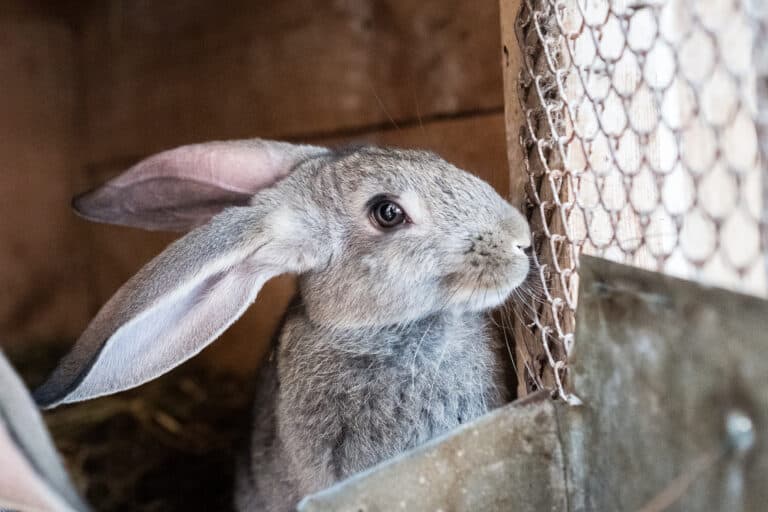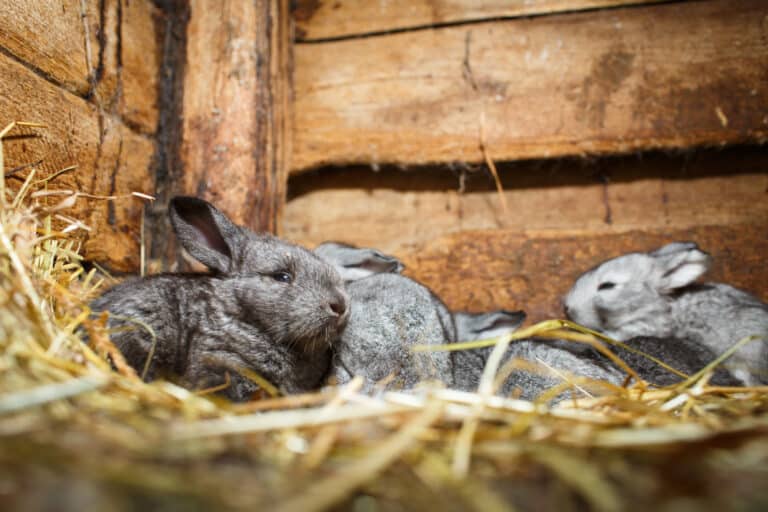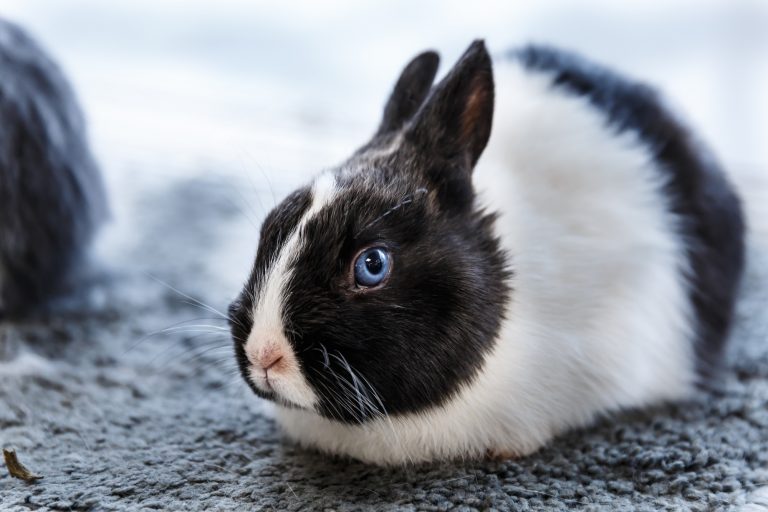Can Rabbits Get Hiccups?
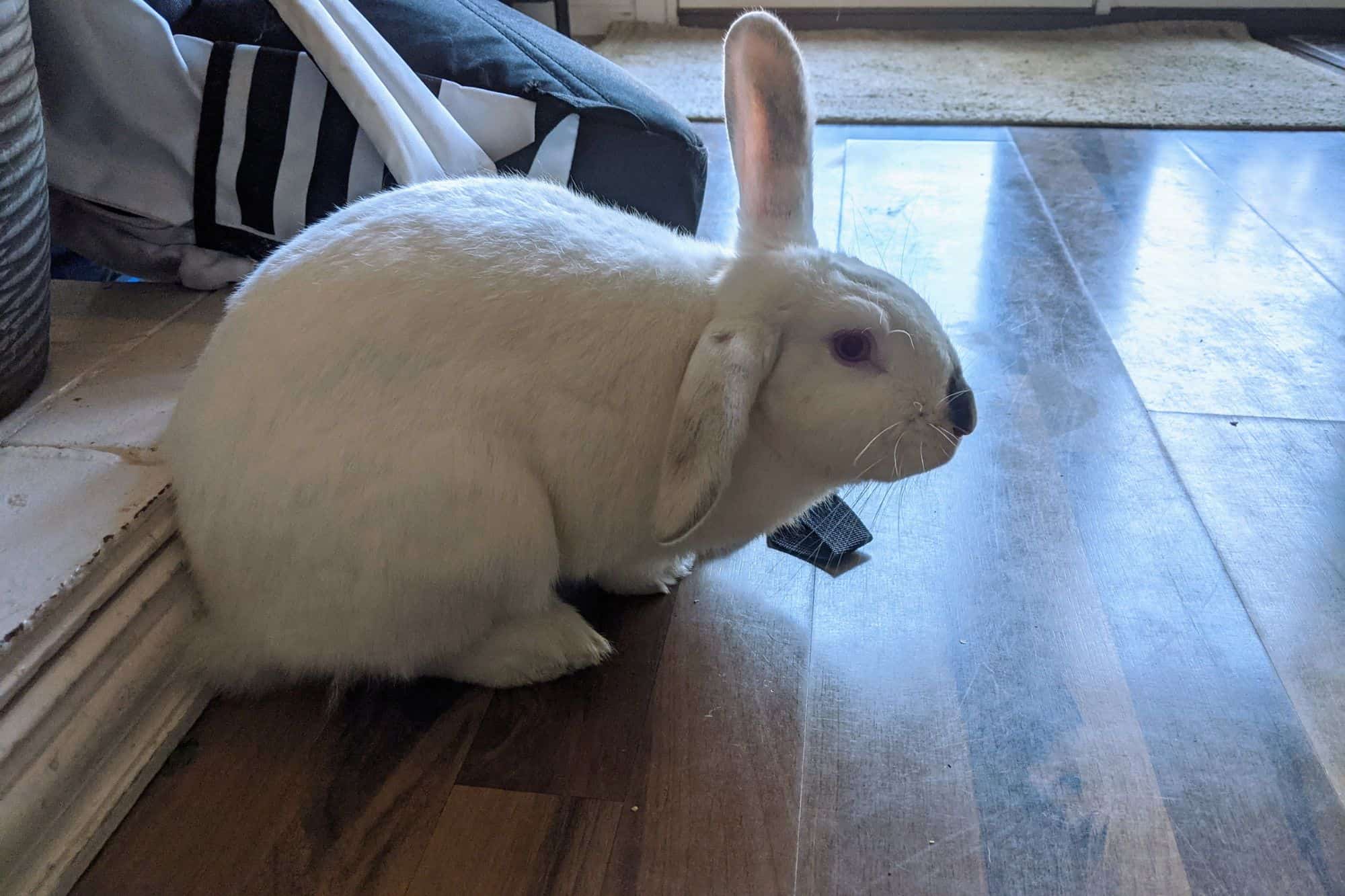
You’re enjoying the sight of your bun when he suddenly starts bobbing his head rapidly up and down. If you don’t know rabbits well, you might think he’s having a seizure or something just as serious. Well, don’t panic. Most likely, he’s just having a case of hiccups. Wait! What? Can rabbits get hiccups? They sure can, and we’ll talk about the hows and whys, so you’ll understand if you need to worry the next time you see your fur baby hiccupping.
What Is a Rabbit Hiccup?
Like with humans, spasms in a rabbit’s diaphragm can cause hiccups. You know, the one with the typical hic sound. Yes, your fur baby’s hiccups sound almost the same as yours, only quieter. Some shaking and head-bobbing typically accompany the event, which alarms pet parents, especially first-time bun moms and dads. Fortunately, hiccups are usually nothing to fret about as they tend to last only a short while. More often than not, they go away on their own.
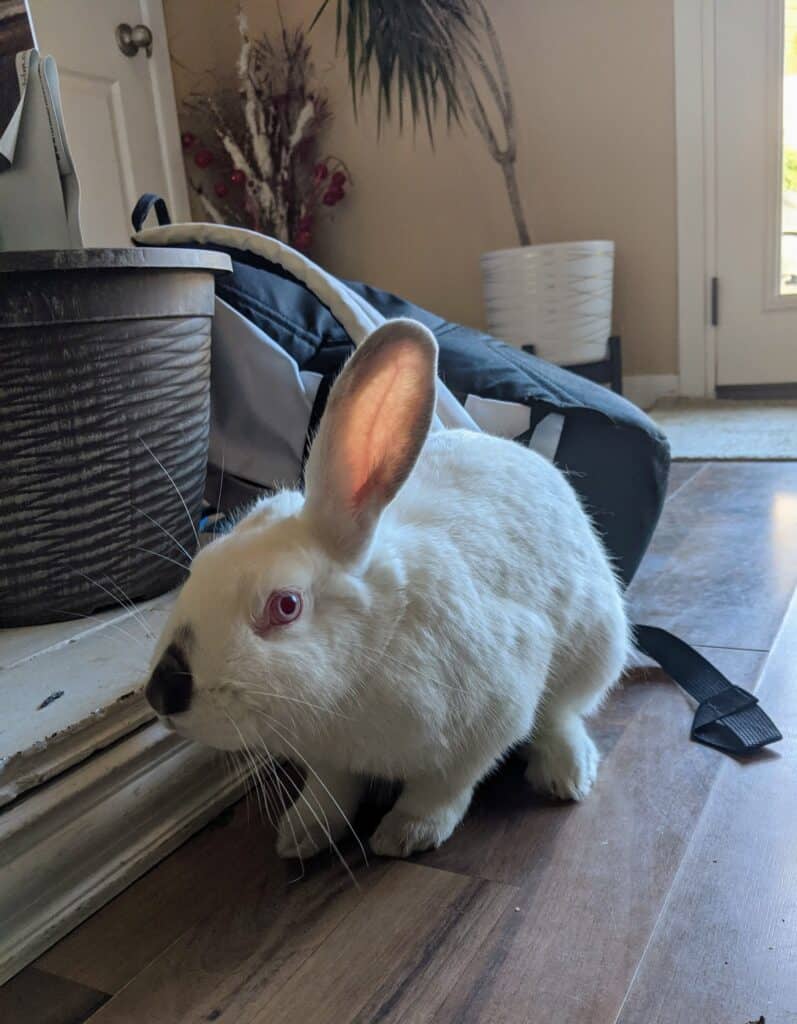
What Causes Them?
Anything that involves swallowing a lot of air can cause your bun to make those hic, hic sounds. The two most common activities that sometimes lead to rabbit hiccups are:
1. Eating
As rabbits eat, especially when they bolt down their meal, they tend to ingest plenty of air. In turn, the trapped gas can trigger a spasm in the diaphragm, causing a hiccup.
Note that hiccups are more common among baby rabbits. That’s because young buns can be pretty insecure about their food. With little experience to draw from, they think that someone will steal their meal before they’ve had their fill. Their solution? Eat as fast as they can, leading to a lot of swallowed air. It doesn’t help that they usually consume pellets, which are easier to gobble up, than hay.
On the other hand, if your rabbit still hiccups even if he eats at an average pace, examine the contents of his meal. Some food can irritate the diaphragm. Through the process of elimination, you may be able to determine what doesn’t agree with him.
2. Play and Exercise
Doing the zoomies, binkying, and boisterous play activities can make rabbits take in a lot of air. When it gets trapped in the diaphragm, hiccups occur.
Do Rabbit Hiccups Last Long?
Normally, rabbit hiccups last for only a few minutes. The contractions in the diaphragm muscles eventually settle down, ending the event. Making your bun stay still can help shorten the duration.
If the hiccupping bout continues for hours, you may need to take your rabbit to the vet to rule out any health issues. Specific indicators will also help you determine if the hiccups may be due to underlying medical conditions. These signs include:
- Loss of appetite: Rabbits love their food, so refusal to eat can mean that your rabbit is sick.
- Inability to poop or pee: Producing small fecal droppings or producing no poop at all is one of the signs of GI stasis, a potentially fatal disease in rabbits.
- Signs of distress: Tooth grating, a hunched posture, and shallow breathing are not normal rabbit behavior. Instead, they usually indicate that your bun is in pain.
Can You Stop Them?
Please don’t try the typical tactic of scaring your bun, hoping that will stop the hiccups. It usually doesn’t work, and it only traumatizes your pet. There’s no urgent need to stop the hiccups anyway because, in most cases, they eventually subside without any intervention.
If the hiccups are upsetting your bun, you can try pressing on his diaphragm with the tips of your fingers to release the trapped air. The diaphragm is below the area where the heart and lungs are. Do this gently. Rabbits hate being touched on the underside of their body, which is a vulnerable area.
This usually does the trick. But if the diaphragm is swollen or feels hard, then your fur baby may have some digestive issues.
If your bun keeps experiencing hiccupping bouts even after your vet has given him a clean bill of health, you can look into some aspects of his lifestyle that may be causing the hiccups. Making the necessary changes often helps resolve the problem.
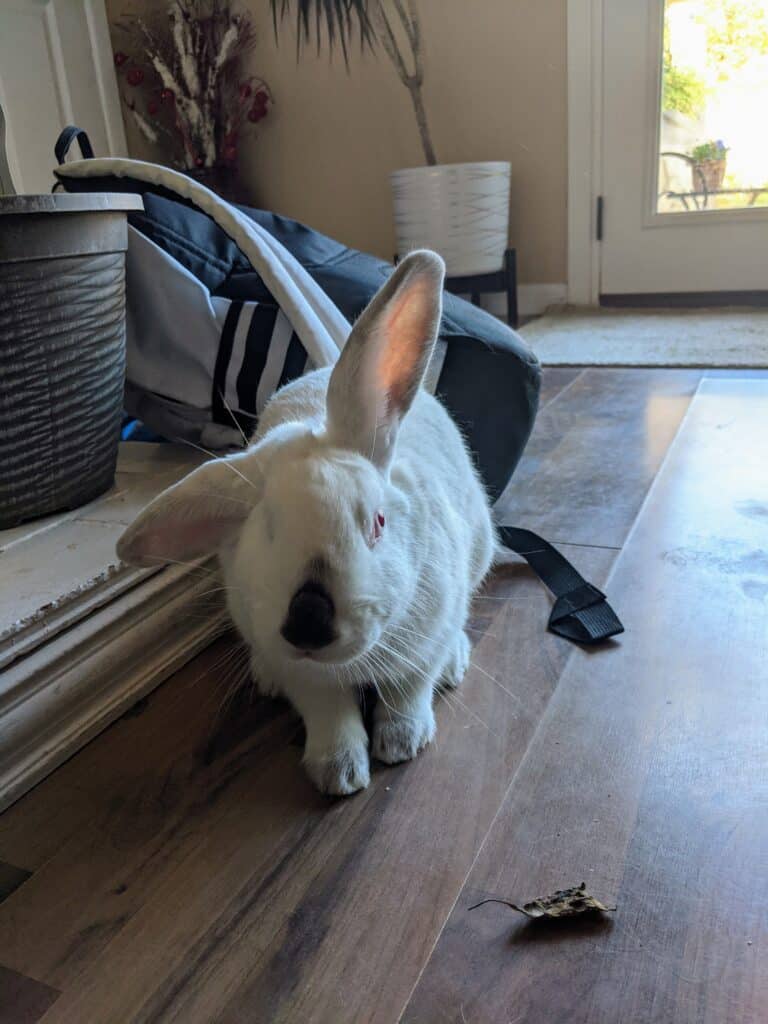
Hiccups Caused by Food
Although food allergies don’t usually cause hiccups, some ingredients in your bun’s feed can irritate his digestive system or the diaphragm itself, which triggers the hiccups. For example, iceberg lettuce, frequently referred to as rabbit food, contains a milky secretion called lactucarium that upsets the stomach and causes other harmful effects. Find out which specific veggies and fruits your pet can eat so you don’t make any feeding mistakes.
Hay vs. Pellets
Between these two, hay is by far the better food choice for your bun. In fact, the bulk of his diet should consist of this chewy grass. Pellets are so much easier to gulp down than hay. Because of its texture, hay requires plenty of munching. Your rabbit can’t gobble it up, which minimizes the risk of taking in plenty of air with his food.
The Amount of Food
Being natural grazers, rabbits will eat as much as you give them. Aside from potentially causing obesity, overeating sometimes triggers hiccups. So except for hay, which you can provide without any limit, restrict the portions you serve your bun, using his body weight as a guide.
Hiccups Related to Your Bun’s Mental and Emotional State
No, stress doesn’t necessarily lead to hiccups. It’s the actions your bun does because of it that may cause hiccups. Take the case of baby rabbits who eat too fast, fearing that someone will take away their food. Their mental state is what causes them to gulp down their pellets. They usually outgrow this feeling of insecurity if they learn through experience that their meal won’t suddenly disappear.
Being consistent in his feeding schedule can help your bun feel secure knowing that meal time comes regularly.
On the other hand, if you have two rabbits, the stress might be due to their interaction as they try to settle the issue of dominance. Consequently, they may feel insecure in each other’s presence and will bolt down their meal. To avoid this problem, you can consider keeping your two fur babies in separate cages until they’ve bonded.
Your bun may still hiccup despite your best efforts. If he’s in good health and doesn’t seem bothered by it, then you can simply wait for those spasms to cease in their own good time.
More Rabbit Care Posts!
- How Long Do Flemish Rabbits Live: Giant Breed Facts
- Complete Guide to the Best Hay For Rabbits: Reviews & More
- Are Rabbits Rodents? Find Out More About These Small Mammals
- Is Oat Hay Good for Rabbits? Complete Guide to the Best Hay
- Why Do Rabbits Lick You? 11 Reasons for This Common Behavior
We hope you enjoyed this post! If you did, will you give it a share or two 🙂 Thank you! ~from Every Bunny Welcome
